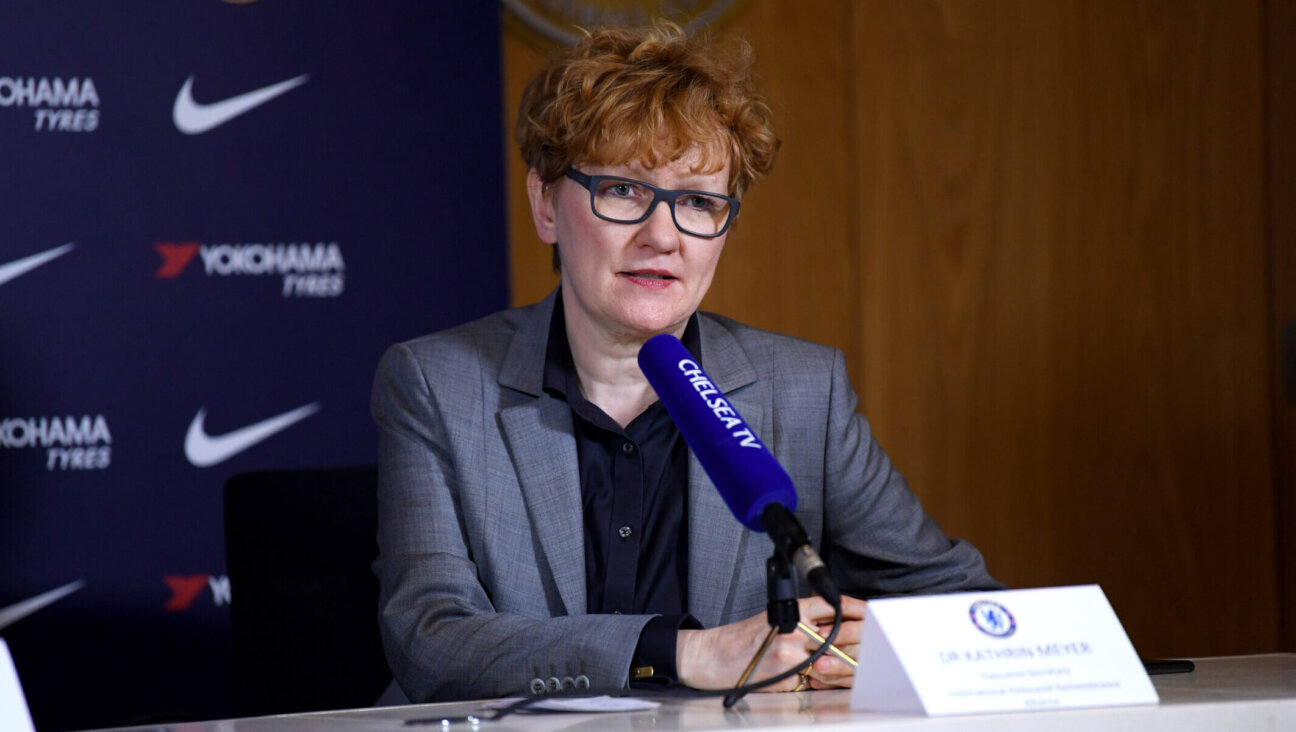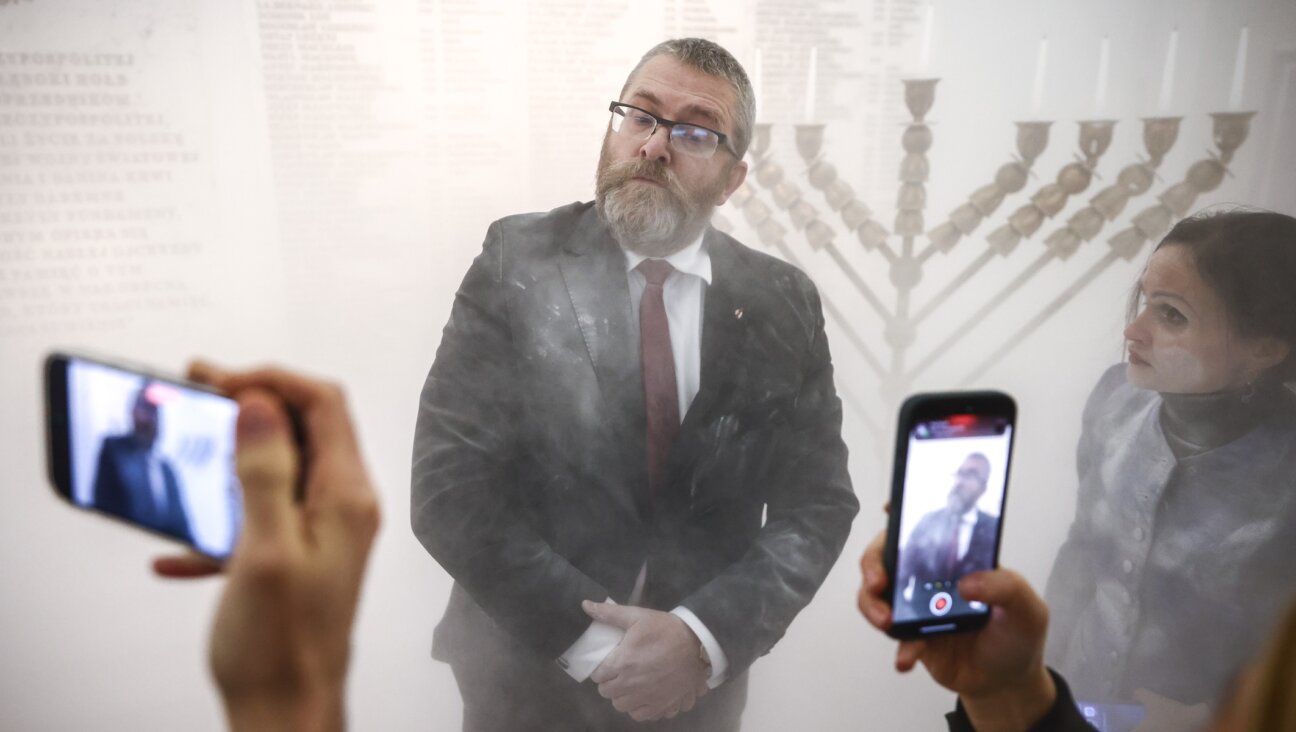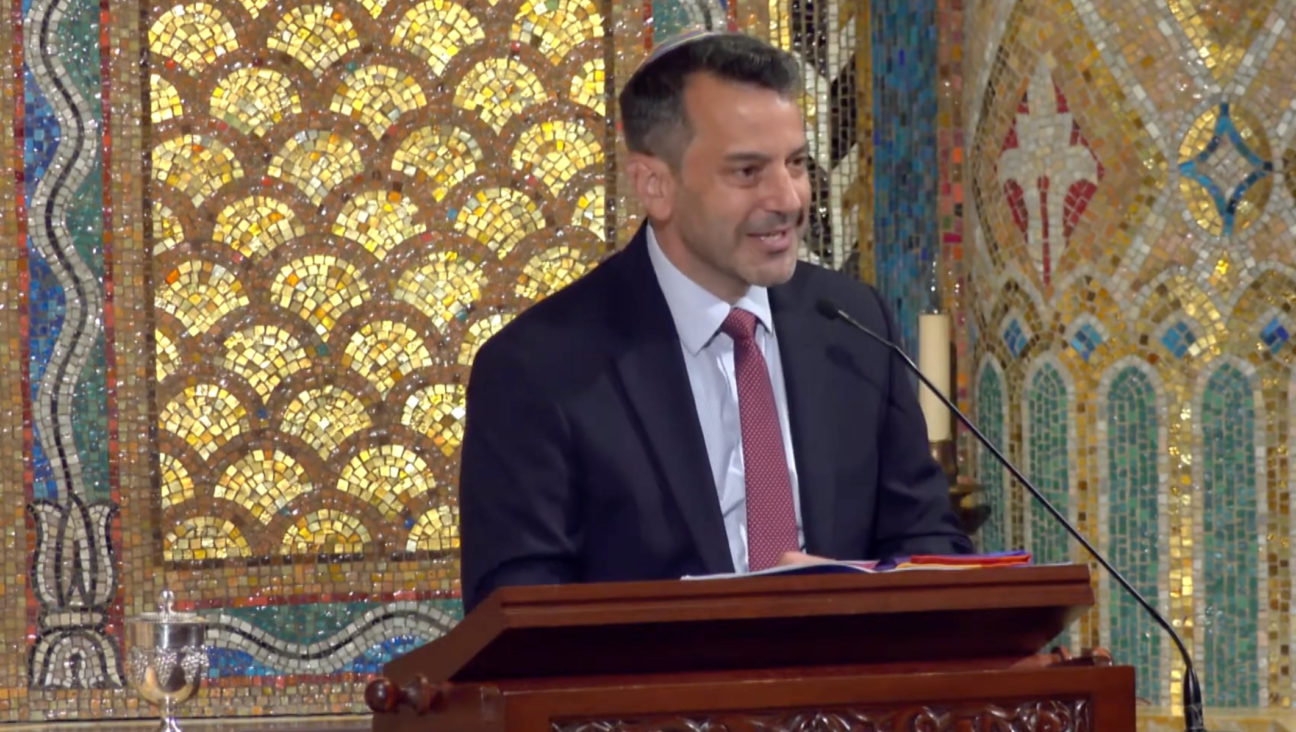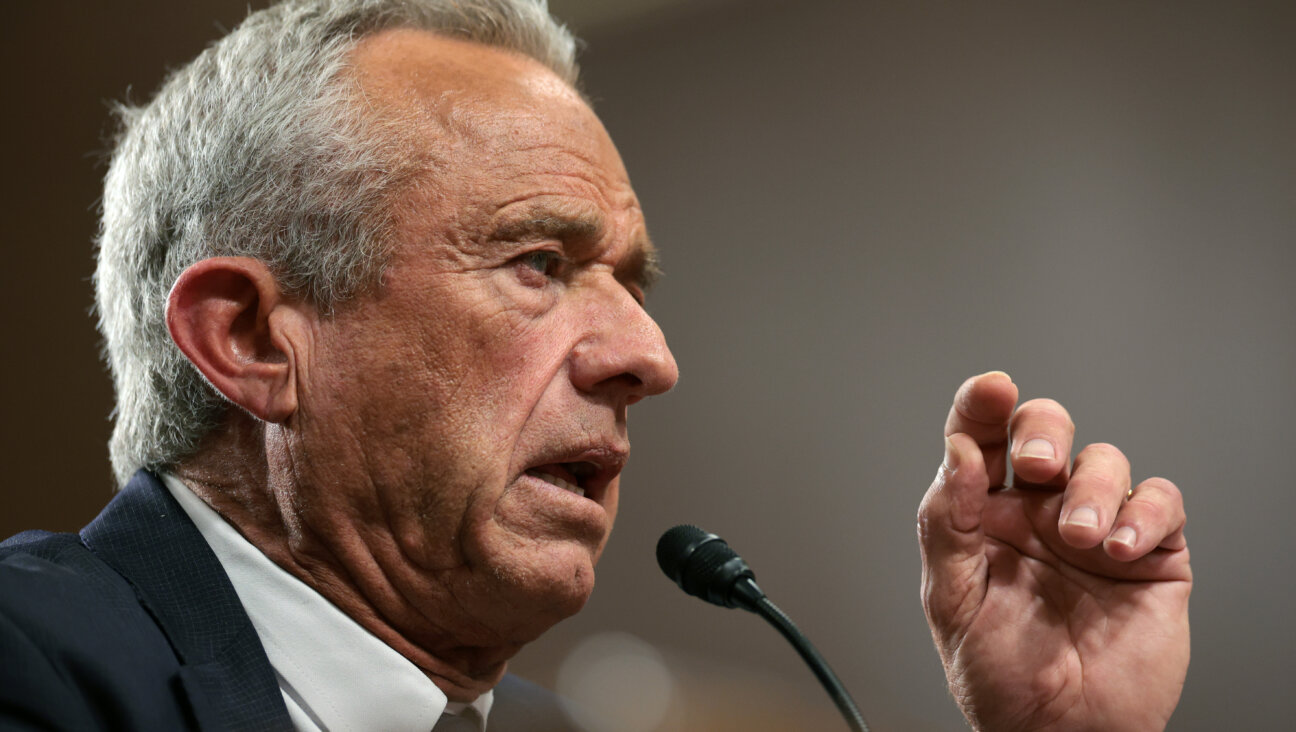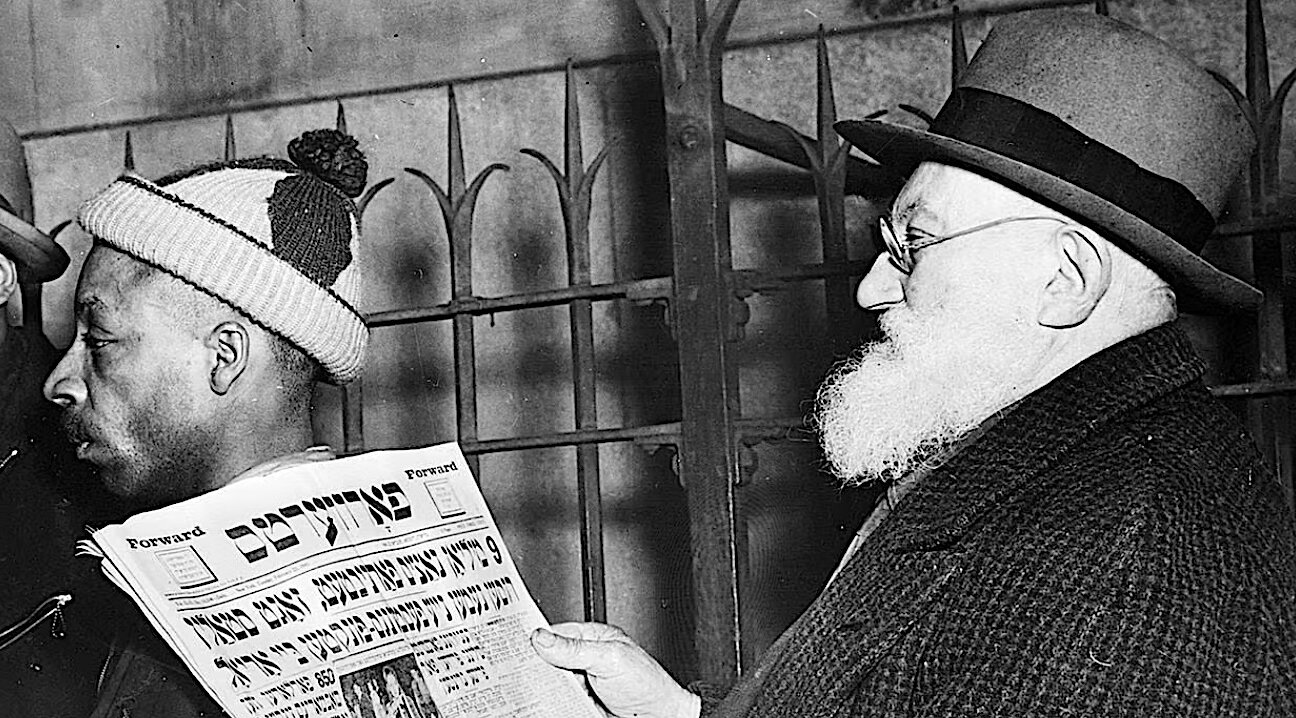How a Small Accounting Firm Became Jewish Charities’ Auditor of Choice

Image by Forward Staff/Anya Ulinich
Two New York Jewish charities rocked by scandal in recent months have something in common: They were both audited by the accounting firm Loeb & Troper.
For years, this small, Manhattan-based firm audited the financial reports of FEGS, which announced in January it would close after uncovering a previously undetected $19 million deficit. The firm also audits the New York Legal Assistance Group, whose president resigned in February amid a reported federal investigation into alleged “accounting irregularities.”
The two troubled charities are far from alone in their reliance on Loeb & Troper, whose role as auditor-of-choice in the Jewish community goes back decades.
Despite having just 19 partners, Loeb & Troper audits the financial reports of far more New York Jewish charities than any other firm. Long embedded in the tight network of social and communal bonds that weaves together New York’s Jewish charities, the firm prepared the most recent financial reports of at least 28 Jewish not-for-profits, according to a Forward analysis.
Among these not-for-profits is the Forward Association, which publishes this newspaper.
The Forward found no other accounting firm with more than a handful of New York Jewish not-for-profit clients.
Now, the firm’s longtime special role in the Jewish community could be eroding. Thanks to shifts in the marketplace and a sense among some Jewish charities that it’s time for a change, its market dominance in this niche is now under threat.
A handful of major New York-based Jewish groups have left Loeb & Troper in recent years, including the American Jewish Joint Distribution Committee and the Zionist Organization of America, which dropped the firm after the IRS temporarily stripped its tax exemption for failing to file returns for three years.
Following the collapse of FEGS, more groups are looking to replace Loeb & Troper, according to a Jewish communal insider who asked not to be named because of the private nature of his conversations with staffers at charities that still employ the firm. Loeb & Troper did not respond to requests for comment for this story.
The firm has not been accused of malfeasance, or even of doing a poor job auditing its clients. Charities with more than $500,000 in revenue are required by New York state law to hire an independent accountant to audit their financial statements and submit a report, but those audits are not designed to catch fraud, only to affirm that the financial reports generated by staff are accurate. It’s not yet clear that there was fraud at FEGS or NYLAG, and it’s far from clear that Loeb & Troper should have seen something.
Still, the firm’s run of sour luck is drawing notice. “I’m sure that people are thinking about that,” said Paul Konigstein, a senior consultant for Accounting Management Solutions, a consulting firm. “We really have to wait and see what additional information comes out about what happened at FEGS and what happened at NYLAG.”
Loeb & Troper’s partnership includes accountants with lifelong ties to the Jewish community. Mel Zachter, who retired from the firm in 2012, is a Yiddish-speaking childhood friend of former New York State Assembly speaker Sheldon Silver and a co-president of Ohel, the Orthodox Jewish children’s welfare charity. Zachter served as CFO of the Metropolitan Council on Jewish Poverty from 2012 through 2014. He was CFO in August of 2013, when Met Council executive director William Rapfogel was arrested in what was revealed to be a 20-year plot to defraud the organization. Loeb & Troper was briefly hired to conduct a forensic audit of Met Council following the arrest, but was replaced within days. Zachter, who resigned from Met Council in 2014, was not accused of wrongdoing in the Met Council fraud.
Loeb & Troper came honestly to its position as the go-to auditing firm for many Jewish charities. Founded in 1919 by Morris Troper and Simon Loeb, the firm specialized early on in auditing New York charities. An early client was the Joint Distribution Committee, which was engaged in helping Jews escape from Western Europe amid the rise of the Third Reich. In 1938, Troper left his firm to head the JDC’s office in Paris. While there, he was responsible for resettling the more than 900 Jewish refugees on board the M.S. St. Louis, the ship of German Jews that sailed from Hamburg to Cuba in 1939, only to be sent back to Germany.
Troper personally arranged for the families on board to be given refuge in Holland, France, England and Belgium. The next year, when the Nazi armies took Paris, Troper fled the city just ten hours before the Germans arrived. He moved the JDC’s operation to Lisbon before going to work for the U.S. War Department in 1942.
The Joint Distribution Committee kept Loeb & Troper as its auditor until 2011. A spokesman told the Forward that the agency wanted a firm with global reach.
Loeb & Troper has remained a small firm, which makes its dominance of the New York Jewish not-for-profit sector more remarkable. Other accounting firms with notable numbers of Jewish not-for-profit clients in New York include Grant Thornton, which is the sixth largest accounting firm in the U.S., with 523 partners; KPMG, the fourth largest in the country; and EisnerAmper, the 18th largest. Loeb & Troper isn’t even among the top hundred largest accounting firms.
The Jewish groups that have stopped working with Loeb & Troper in recent years have switched to the larger accounting shops. The American Society for Technion-Israel Institute of Technology, last audited by Loeb & Troper in 2012, switched to Grant Thornton. The ZOA switched to EisnerAmper.
Some of those shifts could be due to new norms in the accounting industry, which call for companies and not-for-profits to rotate their auditing partners on a regular basis. The Sarbanes-Oxley Act, a federal law passed in 2002 following the collapse of the accounting firm Arthur Andersen in the Enron scandal, requires that corporations rotate the lead partner on the accounting firm’s side of their audit teams every five years. Not-for-profits are not bound by the rule, but some choose to abide by it as a best practice. Michael Schementi, senior vice president and CFO at American Society for Technion, said that his organization initially rotated partners within Loeb & Troper before eventually choosing to switch to an entirely new firm. “It was time to change,” Schementi said.
Whether other Jewish charities follow suit remains to be seen.
Contact Josh Nathan-Kazis at [email protected] or on Twitter, @joshnathankazis
A message from our Publisher & CEO Rachel Fishman Feddersen

I hope you appreciated this article. Before you go, I’d like to ask you to please support the Forward’s award-winning, nonprofit journalism so that we can be prepared for whatever news 2025 brings.
At a time when other newsrooms are closing or cutting back, the Forward has removed its paywall and invested additional resources to report on the ground from Israel and around the U.S. on the impact of the war, rising antisemitism and polarized discourse.
Readers like you make it all possible. Support our work by becoming a Forward Member and connect with our journalism and your community.
— Rachel Fishman Feddersen, Publisher and CEO











